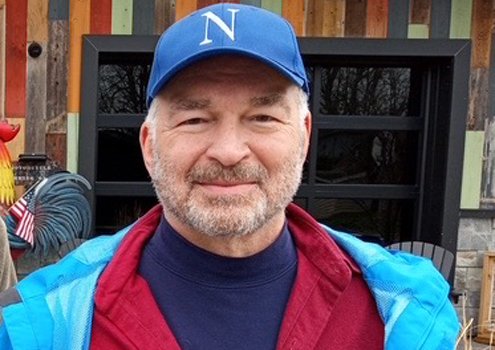Reading time: About 2 minutes
Fred Estes follows a terrific motto from a design thinking mentor: “You keep revising until you run out of time or money….”
Fred Estes taught science for two decades near his home in San Francisco. He wrote Design Thinking: A Guide to Innovation, and Teen Innovators: Nine Young People Engineering a Better World Through Creative Inventions. Both books were inspired by his students. Earlier, he worked as a financial analyst, joined an AI startup, developed corporate training programs, and earned a doctorate in learning psychology. Currently, he teaches graduate students about design thinking, innovation, and creative teaching.
I was excited to talk to Fred about how he approaches writing.
Q. Roughly how much time do you spend writing every day?
I spend about two to three hours writing each day, more if I’m near a deadline or on fire.
Q. What’s a simple activity or habit that makes you a better writer?
During my writing day, I stay focused—phone away, door closed. But afterward, I often chase random questions: the origin of a word, a crossword clue I missed. This curiosity play—these wandering internet excursions—surprisingly often lead to an insight or detail I didn’t realize I needed.
Q. What interferes with your writing?
Sometimes life events, like a family emergency, crash my writing plans for a day. I tackle the most needful work, accept the new priority, and then get back on my plan as soon as possible.
Q. How do you persuade yourself to sit down to write on days when you really, really DON’T feel like doing it?
In the morning, I don’t really think about whether I want to brush my teeth, I just do it. I don’t think about whether I want to write, I just do it. The habit of writing first thing in the morning makes it easier for me.
Q. Is there a particular motto or saying that you’ve found helpful for writing?
I seem to need three mottos. From a seasoned agent: “What community will your writing serve?” From a project manager: “Everything can always be better.” And from a design thinking mentor: “You keep revising until you run out of time or money.”
Which stage of the writing process do you enjoy the most: researching, writing or editing/rewriting and why?
For me, writing is a multi-step design thinking process, as explained in my book. It’s all part of a single continuous journey. Each step is necessary. Each step has its own delights and challenges. Like raising a child.
Q. What’s one of the best books you’ve read (either fiction or non) in the last five years?
Brave New Words by Salman Khan is a wonderful book. He shares a hopeful, practical vision of how generative AI can help students learn faster, better, and with more personalization. It’s not just wishful thinking—it’s a world we can build, if we do it thoughtfully.
Q. What book are you reading right now?
I’m rereading DEI Deconstructed by Lily Zheng, a practical, action-oriented guide to improving diversity, equity, and inclusion in the workplace. I’m reading it with a university book club, and I find Zheng’s insights persuasive and timely—especially in today’s political climate, when meaningful, thoughtful action feels more important than ever.
Q. What do you think is the biggest misperception that new writers have about the act of writing?
One common misconception is that you’re either a writer or you’re not—that it’s all about talent. But writing is more like yoga: you show up each day on your mat or at your desk, do the work, and grow over time. Writing is a practice—a verb, not a noun.


